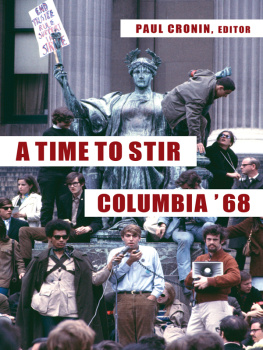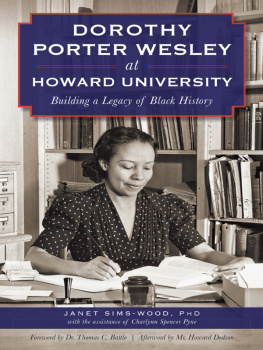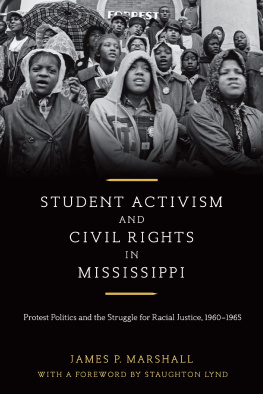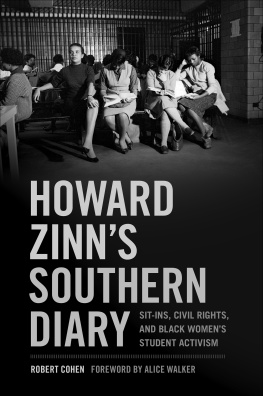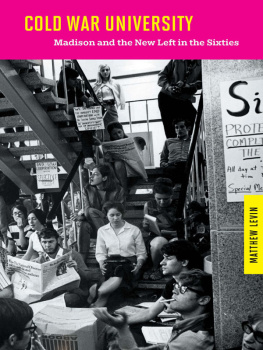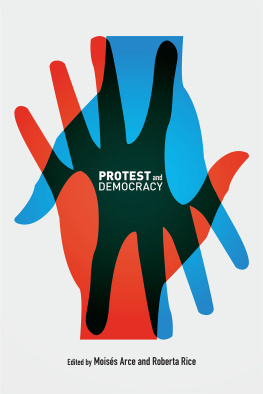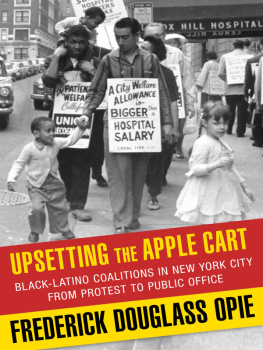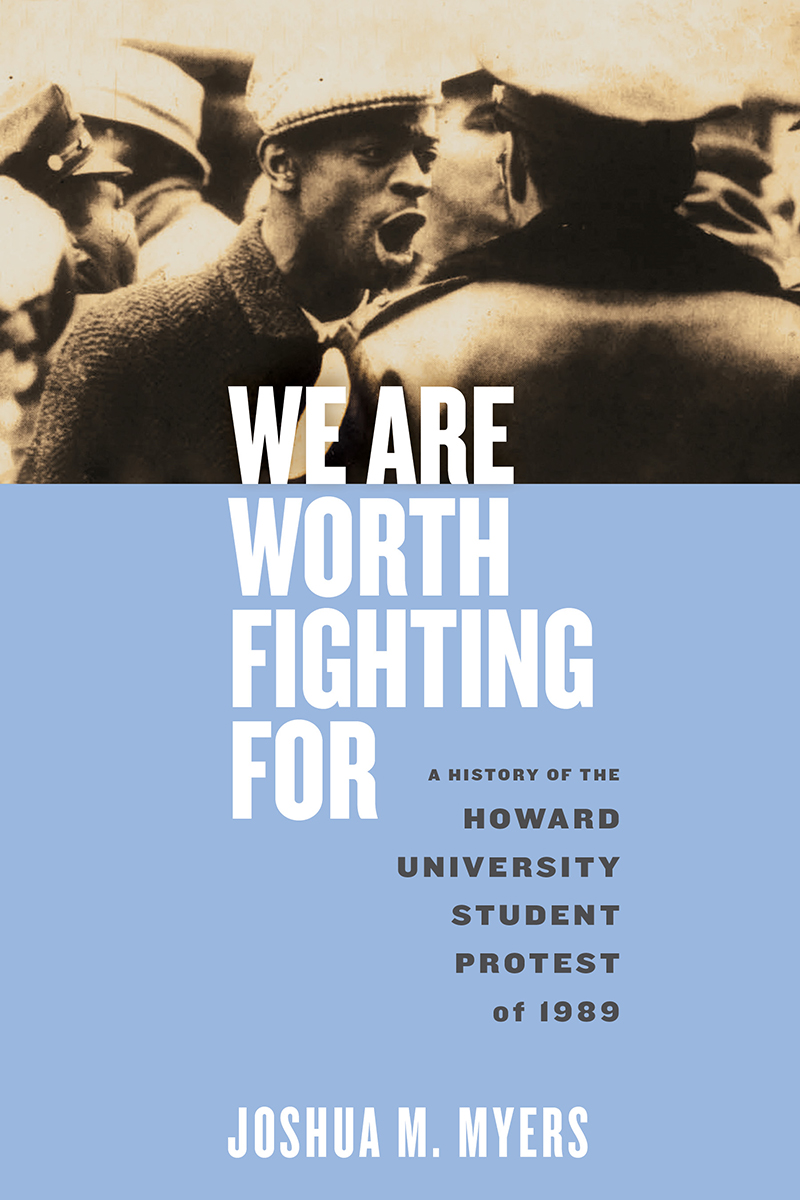
We Are Worth Fighting For
Black Power Series
General Editors
Ibram Kendi and Ashley Farmer
Joshua M. Myers
We Are Worth Fighting For: A History of the Howard University Student Protest of 1989
We Are Worth Fighting For
A History of the Howard University Student Protest of 1989
Joshua M. Myers

NEW YORK UNIVERSITY PRESS
New York
NEW YORK UNIVERSITY PRESS
New York
www.nyupress.org
2019 by New York University
All rights reserved
References to Internet websites (URLs) were accurate at the time of writing. Neither the author nor New York University Press is responsible for URLs that may have expired or changed since the manuscript was prepared.
Library of Congress Cataloging-in-Publication Data
Names: Myers, Joshua (Joshua M.), author.
Title: We are worth fighting for : a history of the Howard University student protest of 1989 / Joshua M. Myers.
Description: New York : New York University Press, [2019] | Includes bliographical references and index.
Identifiers: LCCN 2019002171 | ISBN 9781479811755 (cloth : alk. paper)
Subjects: LCSH : Howard UniversityStudentsHistory20th century. | African American student movementsWashington (D.C.)History20th century. | African American college studentsPolitical activityWashington (D.C.)History20th century. | African American universities and collegesWashington (D.C.)History20th century. | Black Nia F.O.R.C.E.
Classification: LCC LC 2851. H M 2019 | DDC 378.1/982996073dc23
LC record available at https://lccn.loc.gov/2019002171
New York University Press books are printed on acid-free paper, and their binding materials are chosen for strength and durability. We strive to use environmentally responsible suppliers and materials to the greatest extent possible in publishing our books.
Manufactured in the United States of America
10 9 8 7 6 5 4 3 2
Also available as an ebook
To the spirits of those who were responsible for imagining that their moment and time had come, to those who continued the work of the sixties into the eighties and nineties
But politically, Im clear and always have been. We are worth fighting for, flaws and contradictions galore, we are worth fighting for... over and over again.
April Silver
Contents
The Black Arts Movement poet Sonia Sanchez often tells the story of her first few months teaching in the newly created Black Studies Department at San Francisco State University. The year was 1969, and the students had just recently completed a five-month strike in which they had demanded a College of Ethnic Studies. It was a moment when the world witnessed the explosive result of introducing more and more nonwhites into Western systems of` higher education. None of these universities had expected that these students would hold onto their cultural identities instead of simply embracing the canon of Western knowledge or the assumed supremacy of the American project. Sanchez was in the thick of this battle as she was brought in to continue the development of one of these alternative intellectual experiments in this dynamic moment.
One night, Sanchez answered her door to find an FBI agent standing at the threshold of her apartment. This was no raidalthough it could have easily been the case. No. The agent had come to ask Professor Sanchez if it was indeed true that she was teaching the work of W. E. B. Du Bois at San Francisco State. Turning to her landlord, the agent then inquired if he knew that he had a subversive as a tenant. What did these figures represent that made the mere teaching of their ideas such a dangerous proposition?
This kind of criminal interrogation may seem unique to the times of the 1960s, but the movement that Sanchez represented continued and continues. Having come to know the work of Du Bois through her brief apprenticeship with the Schomburg Center librarian Jean Blackwell Hutson, Sanchez would not abandon him in her teaching, even as he became persona non grata, in many respects as a result of his own refusal to abandon his radical politics and embrace Cold War liberalism. Sanchezs embrace of radical Black thinkers was an act of preservation,
One such generation would emerge almost twenty years after the knock on Sanchezs door. In the nervous moments before perhaps the most important event in this late 1980s iteration of Black student radicalism, it was none other than Sonia Sanchez who would provide inspiration and motivation to its young spokeswoman, April R. Silver, who recalls fondly that
Sonia Sanchez, who guided me so carefully during this time (over the phone), made it all clear to me one night when we, as a group, had decided to go through with the plan to shut down the school. In effect, she said, in the most maternal way, April, when people ask you why you are fighting against your own school, when they try to tell you that you are wrong to protest against President Cheek, when they ask you why are you going through with shutting down the school (a plan that was unknown to most at the time), you have to tell them its because you love Howard University, because you love Black people. You have to tell them that you are fighting because what you believe in is worth fighting for. Its up to you all to make sure that Howard fulfills its mission to you. We fought too hard to let our Black institutions end up in the hands of people who oppose us.
These were all the words she needed. The moment was drawing nigh. And by ensuring connections to those who had participated in similar struggles a generation or two earlier, the Howard student radicals were extending a tradition. The protest would not succeed otherwise.
We Are Worth Fighting For is a history of the Howard University student protest of 1989 as told from the perspectives and worldview of its participants. It frames the actions of the students involved in this movement as a part of a long genealogy of Black renegades who resisted the notion that peoples of African ancestry should remain wedded to the ideals of American universalism. Rather than pursuing dtente with an inherently oppressive political regime, this genealogy of Black radicals pursued self-defined norms and self-determined actions for securing a just society for their group and for humanity. And thus the Black Radical tradition found itself at center of the controversy at Howard University during the key moment in the appearance of what some of have called the hip hop generation.
At the center of this story is the student organization Black Nia F.O.R.C.E (Freedom Organization for Racial and Cultural Enlightenment), which was the catalyst for the coalition of organizations that developed and went through with the plans for the takeover of the university. While the overriding ideals of this organization and this movement were geared toward self-determination and Black solidarity, the precipitating event was Howard president James Cheeks decision to support the appointment of Republican National Committee Chairman Lee Atwater to the universitys board of trustees. Yet this was but onealbeit the most objectionableof the many issues that caused these students to demand changes from the university.
The events of 1989 demonstrated that Black youth were not passive receptacles of the neoliberal values of the Reagan era. Against the trend prominent among many educated Americans that saw them take their place among the Yuppies and reject the sixties values of their parents, a significant number of Black youth, inspired by those of their communities that felt the underside of Reaganism, chose to resist its imposition. While the roles Black youth played in the anti-apartheid struggle, as well as in the political campaigns that rejected the conservative values of the 1980s, have been acknowledged, the Howard protest of 1989 represented an extension of the still-vibrant questions of self-determination and institutional autonomy that have always been associated with Black political activity. It was a nationalist movement that was conversant with and connected to the spirit of the Black Radical tradition.
Next page


